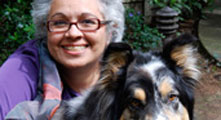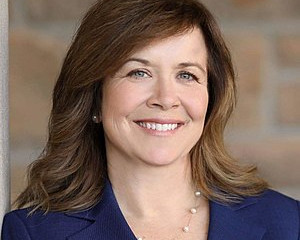How did the Ombuds Office come about, and what function does it serve on campus?
Any organization’s challenge is to open up the flow of communication. The College made a commitment to do this, and the Ombuds Office was created. It’s written in the Ombuds’ Office Charter that the ombuds serves as an information and communication resource, consultant, and catalyst for institutional change without disclosing confidential communications.
The office is available to assist faculty, staff, students, and other community members who seek guidance in addressing the range of issues that can occur in a college community.
In addition to listening to people who need to talk to someone about what is not working well, I can look for patterns and identify things that are systematic. Because I work autonomously, I can’t take action, but I can make recommendations. So, I look for general trends and report to the president what I’m seeing and also what I’m not seeing.
What is your background, and how did your prior work prepare you to become the first ombudsperson at Lewis & Clark?
One of the things I’ve discovered I’m skilled at is starting up new programs. I’ve done this several times in my professional career. This meant I could help Lewis & Clark actually get the Ombuds Office up and running, in addition to serving as the ombudsperson. During the pilot phase, we’ll see what works here, and what needs to be tweaked. I’m excited about this phase of the work.
Since 1993, I’ve had a consulting practice in which I consult with organizations and individuals on matters of organizational and personal effectiveness, diversity, and cultural identity. I was also selected to be the ombuds because of my work and academic experience addressing issues where various cultural perspectives were involved.
For 16 years, I worked for a large bank corporation with 14,000 employees in over 20 states. For 10 of those years, I ran half of the Human Resources Division, which included Employee Relations, Diversity Programs, compensation, and Employee Benefits. Because it was such a large organization, things usually didn’t land on my desk unless they were pretty complex, or folks were really upset—I saw every possible combination of things.
For the last nine years, I’ve taught a course at a university in Northern France, working with international students on how culture, change, and management all go together.
I’ve been an educator and administrator, and my work as adjunct faculty and former associate dean of the graduate school give me a personal knowledge of Lewis & Clark, from faculty, staff, and student points of view. I also received training from the International Ombudsman Association.
In short, I’ve spent my entire career looking for ways to help people work together and be whole. Helping students learn is our organizing principle at Lewis & Clark. It’s why we’re all here. My work represents anything I can do to help that. I’m interested in contributing however I can, but particularly by emphasizing open and respectful communication.
How should a person decide when it is appropriate to visit the Ombuds Office versus Human Resources?
I’m here to help people develop options and strategies. HR still has an employee relations function, but my emphasis is on opening up communication outside the formal administrative process, in a confidential, impartial, and independent way. We can explore issues such as:
• Interpersonal conflict
• Issue clarification
• Competing perspectives or agendas
• Confusion about a college policy, or the perception one has been applied unfairly
• Ethical dilemmas
• Moving beyond a perceived impasse in a work relationship
• Misunderstandings based on cultural perspectives
• Personal coaching
• Perceived retaliation or fear of retaliation
• Harassment or discrimination
• Contested ownership of intellectual property
• A troubling evaluation or grade
• Bureaucratic impasses
Sometimes people just need someone to listen to them and be a mirror for them. Sometimes it’s more complicated, and I may have five people in my office, trying to get to the heart of a problem. Some individuals may have exhausted two or three resources without resolving their issue. Or, for some, they’re just curious. It’s normal to be nervous, but come anyway!
How does the Ombuds Office handle confidentiality?
The four pillars of the Ombuds Office are:
Confidential
Impartial
Informal
Independent
Confidentiality is central to this. If a personal comes and talks to me, no one will know—even if the person is referred to me by someone else. It also means I don’t keep records. If I do take notes, I shred them right away. It means my office is in a place with low foot traffic. It means I have blinds on the windows. It’s hard enough to think about what you want to say, but when you know I’m not going to say anything to anyone, maybe that can remove some of the worry. People like having a place to come where you can just talk and be listened to.
What kind of coaching services do you offer?
I offer professional coaching and life coaching. I help people identify what goals they might want to pursue professionally. I also help identify styles of working and skills, like interpersonal communication skills, that need improvement. I give referrals to EASE and health services and help students identify learning challenges.
It’s most common for people to come a few times. I’ve posted a bibliography online, and I have some interesting books in the office on topics like managing conflict, dealing with change and transitions, and forgiveness. Stop by and borrow a book overnight if you’d like.
What sorts of interests or activities do you pursue outside of work?
Because my dad was in the military, I traveled a lot growing up. Because I went to 13 schools before I got to college, I was constantly changing my perspective. Living in Northern Japan in 1961, was a lot different than living in New York. Then I went to high school in Honolulu. Because of that constant change, I’ve always liked searching out different experiences.
I love to go to movies and read books that make me think, and then talk with people about them. I love things that make me look at different perspectives. I have adult children and a dog. I also love knitting, music, and travel.
What is the best way to get in with contact you?
Call me at extension 7336 or email ombuds@lclark.edu. Stop by during open office hours on Thursdays between 11 a.m. and 1 p.m.—drop by and see what it looks like! I’m on the lower level in the Chapel.


